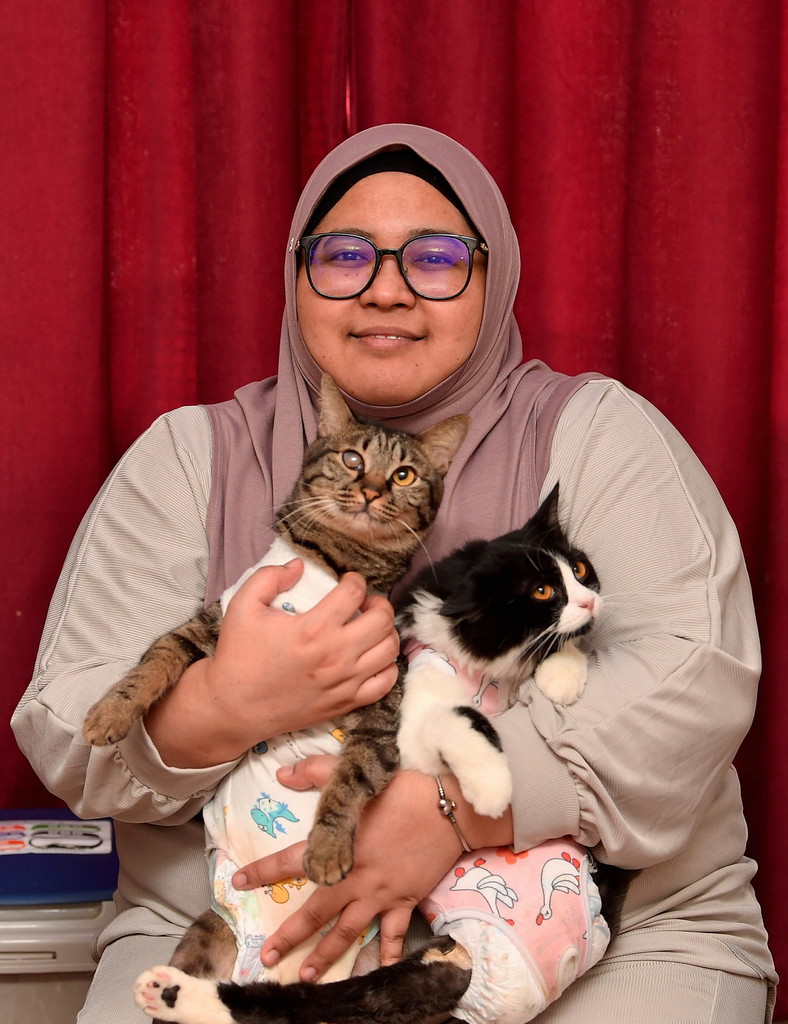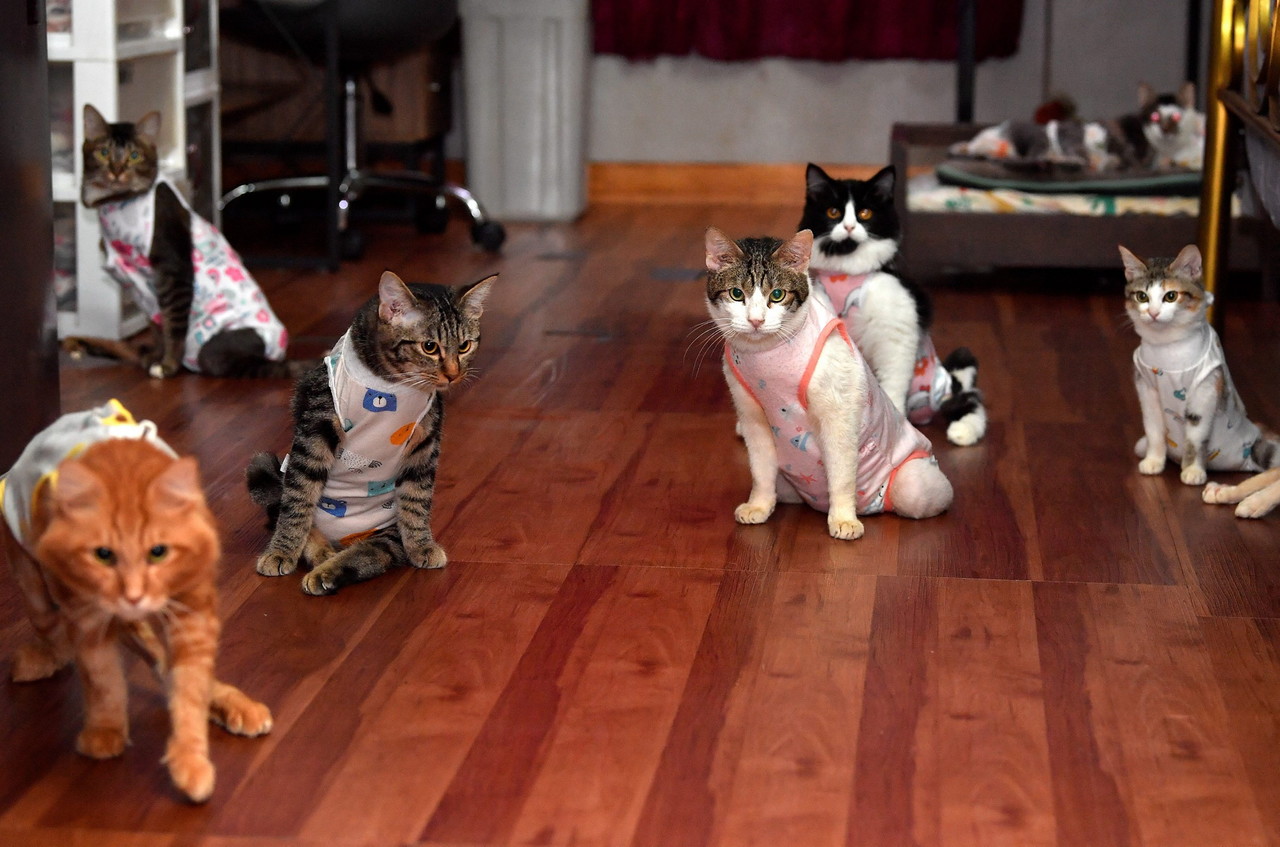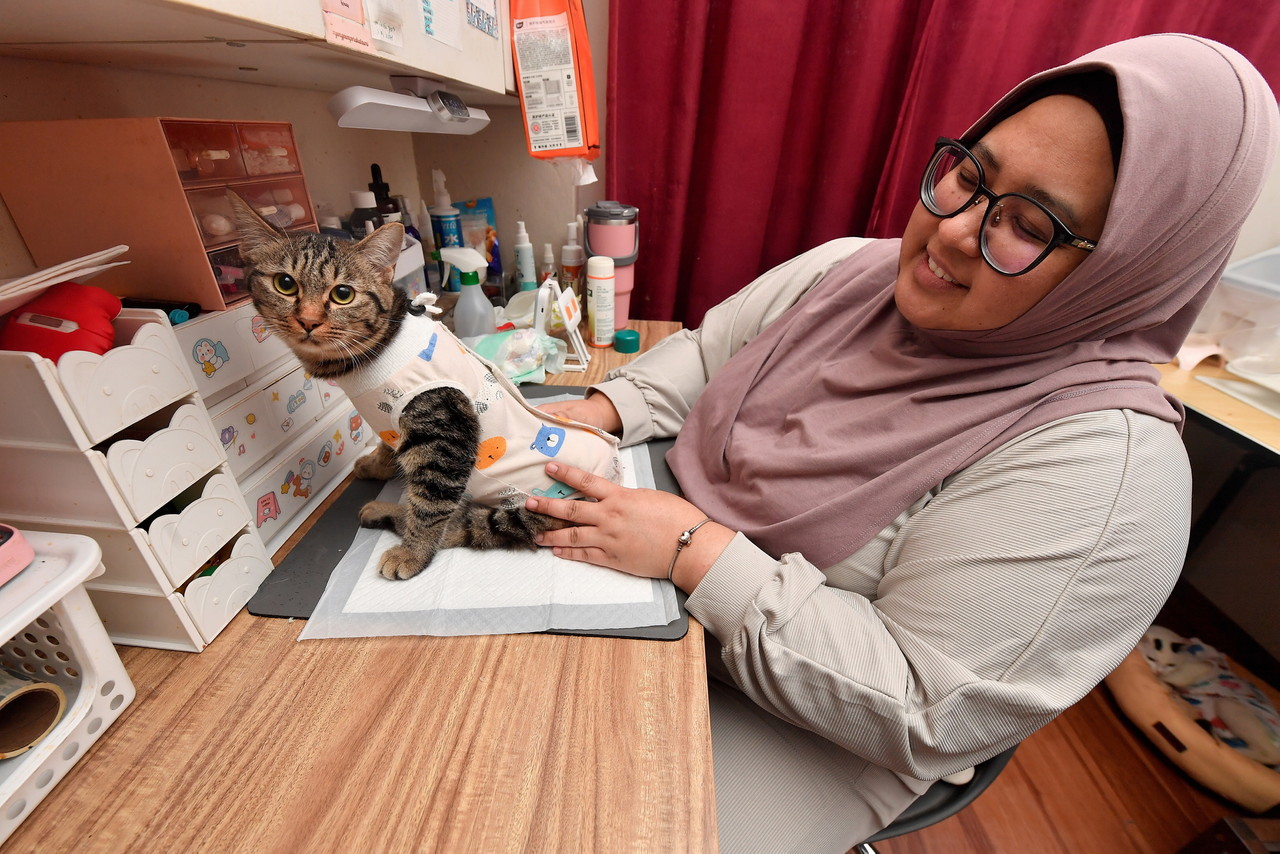SHAH ALAM (Bernama) – Amid the rising cases of cat abuse reported each year, there are still compassionate individuals who selflessly dedicate their resources to protecting these furry companions, ensuring they receive proper care, treatment, and a comfortable life.
Four years ago, moved by the rising number of abandoned cats on the streets during the Movement Control Order (MCO), Nur Hanariawati Mohd Najib and her husband, Baharim Abu Bakar, 47, founded Rumah Katsumi as a sanctuary for them. They have since opened their 2,000-square-foot rented home to over 50 cats, including 27 with disabilities.

Beyond that, the couple has even transformed their bedroom into a makeshift ‘hospital’ to care for and ensure the comfort of these disabled cats, many of whom are paralysed due to vehicle accidents, falls from buildings, or abuse by irresponsible individuals.
“I used to care for healthy cats, but my journey with disabled cats began in 2021 when I came across numerous social media posts seeking adopters for injured cats. I started with one, and now I have rescued 27, not counting those that have died,” she told Bernama.
The 45-year-old housewife explained that the cats were rescued from various states, including Johor, Negeri Sembilan, Kedah, Pahang, Terengganu, and Kelantan, using ‘pet taxi’ services—specialised transportation for pets.

Despite sacrificing time and money for the welfare of these precious creatures, the mother of three feels grateful for the opportunity to care for them.
“I haven’t visited my hometown or taken a vacation in a long time because I need to look after the cats. I usually clean the cats and their space daily, and I change the diapers of the paralysed ones about four to five times a day,” she shared.
“I also have to assist these paralysed cats in urinating and defecating, which takes about two hours per session, as they are unable to do it on their own,” she said, adding that she uses baby disposable diapers of various sizes for her beloved pets.
She also said that she shaves the fur on the tails of the disabled cats to make cleaning easier, especially to prevent unpleasant odours if waste gets on that area.
Fond of sharing short videos of her special-needs cats on her TikTok page, Cerita Kucing Katsumi, she explained that stray cats rescued in critical condition—often after being hit by vehicles—usually require at least a month of treatment before recovering.
With an estimated weekly cost of up to MYR1,200 to care for these disabled cats—including expenses for specialised food and diapers—this figure excludes additional costs for veterinary treatment when required.

“We personally cover the costs of treatment and cat care. However, if expenses exceed MYR2,000, we seek public donations. Even before we began caring for disabled cats, my husband had already set up a social media account to promote our grooming and pet care services.
“This has helped us in seeking funds to cover the medical expenses of these special-needs cats. Alhamdulillah, Malaysians are generally very generous,” said Nur Hanariawati, who currently cares for disabled cats ranging from three months to four years old.
One of the challenges she faces is the risk of injuries among the cats during interactions, which sometimes require immediate and costly veterinary treatment.
“The cats here are all friendly and don’t fight. However, while grooming each other, they sometimes bite their friend’s tail. Since the injured cat is paralysed, it doesn’t feel pain, and we only notice the damage when the tail is badly affected. At that point, we have to take it to the clinic for amputation, which costs MYR500,” she explained.
Without hiring any assistants, the couple ensures that the disabled cats receive an annual veterinary check-up at home, including blood tests to detect any health issues.
“Paralysed cats are more prone to kidney disease as their condition affects bladder function, making them highly susceptible to infections. Since we have to manually assist them in eliminating waste, any residual waste can lead to infection. That’s why regular check-ups are essential,” she added.






